Sequencing Skills Numbers Worksheets for Ages 4-8
5 filtered results
-
From - To
Enhance your child's learning with our Sequencing Skills Numbers Worksheets, designed specifically for ages 4-8. These engaging activities will help young learners grasp the essential concepts of number sequences and patterns. By practicing with fun, interactive worksheets, children will develop critical thinking skills while boosting their confidence in early math. Our worksheets offer a variety of exercises, from simple counting to more complex sequencing tasks, ensuring a well-rounded understanding of numerical order. Whether used at home or in the classroom, these resources provide a solid foundation for future math success. Start your child's journey in mastering sequencing skills today!
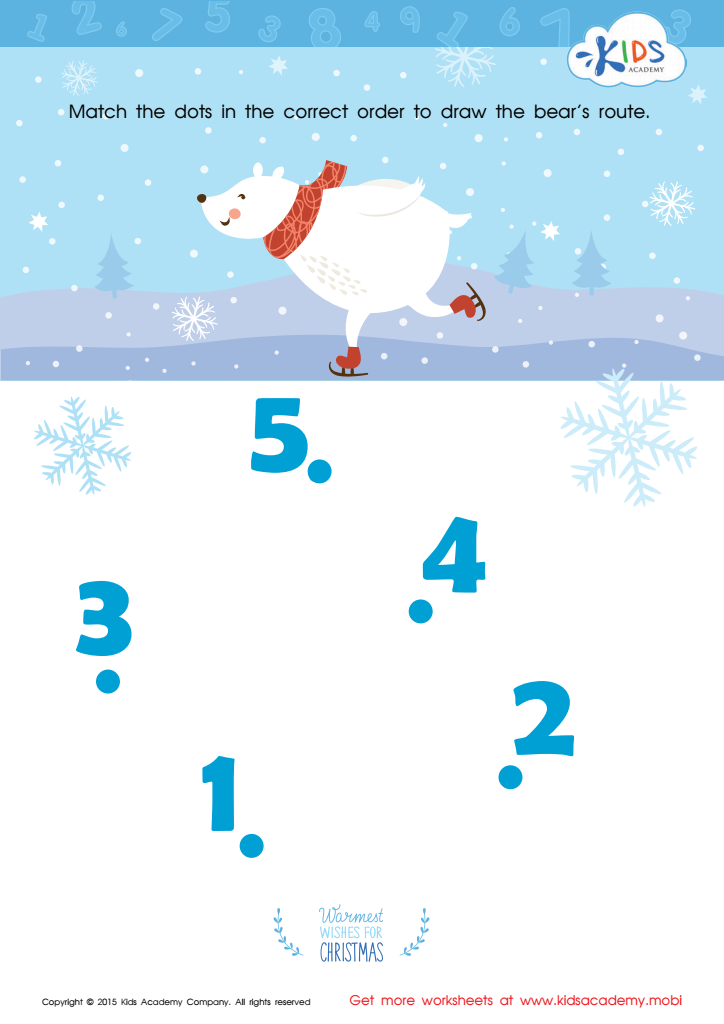

Drawing the Bear's Route by Number Worksheet
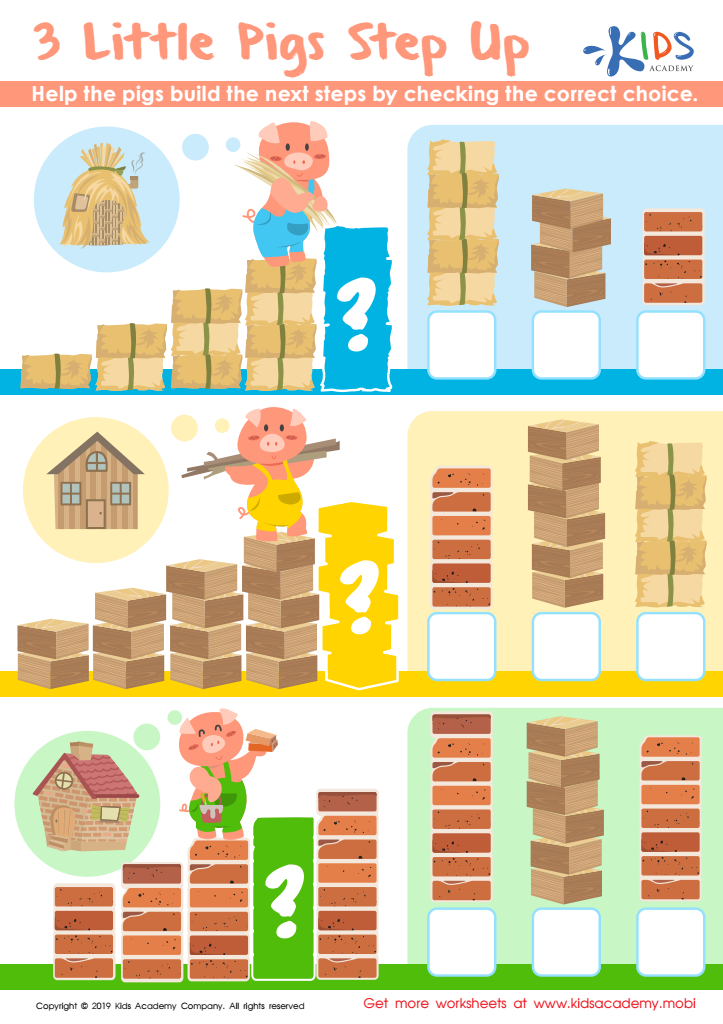

3 Little Pigs Step Up Worksheet
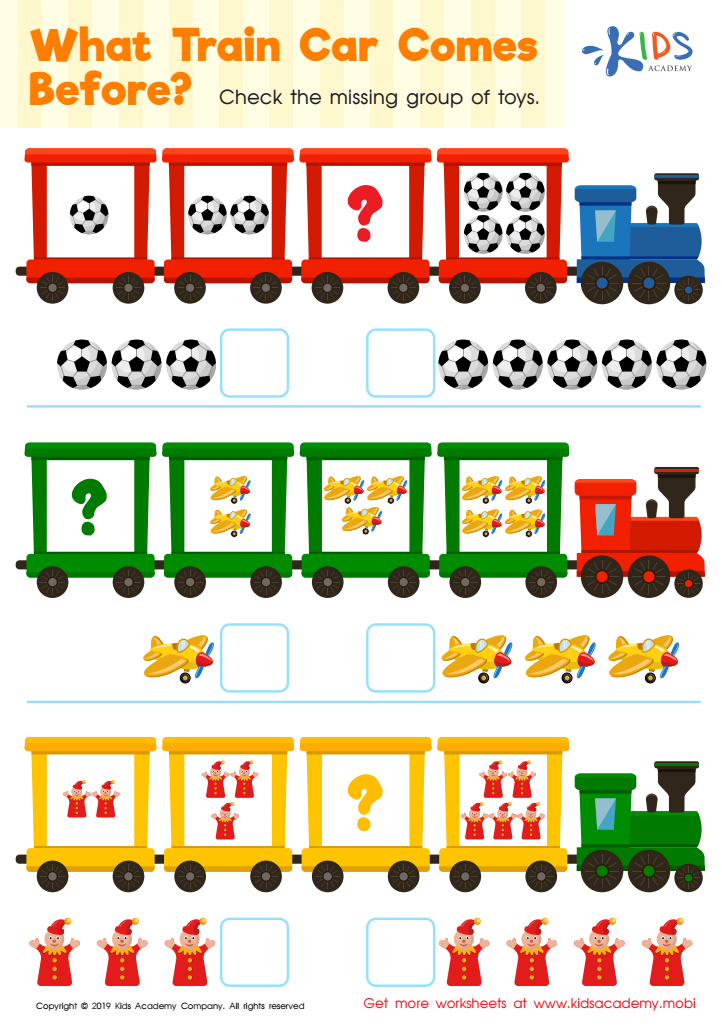

What Train Car Comes Before? Worksheet
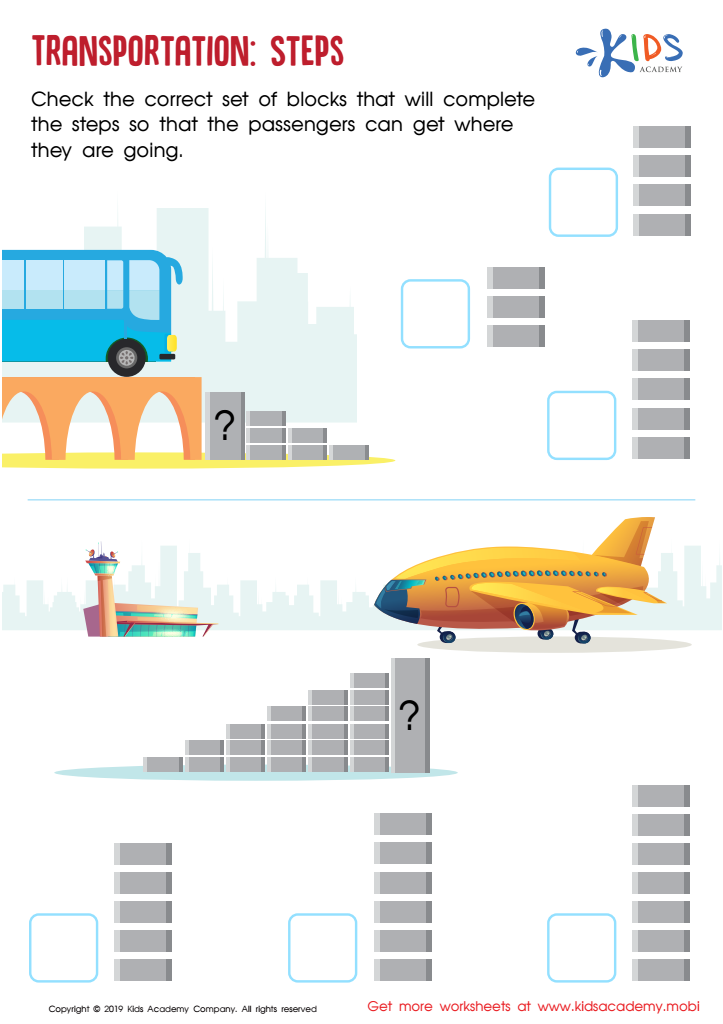

Transportation: Steps Worksheet
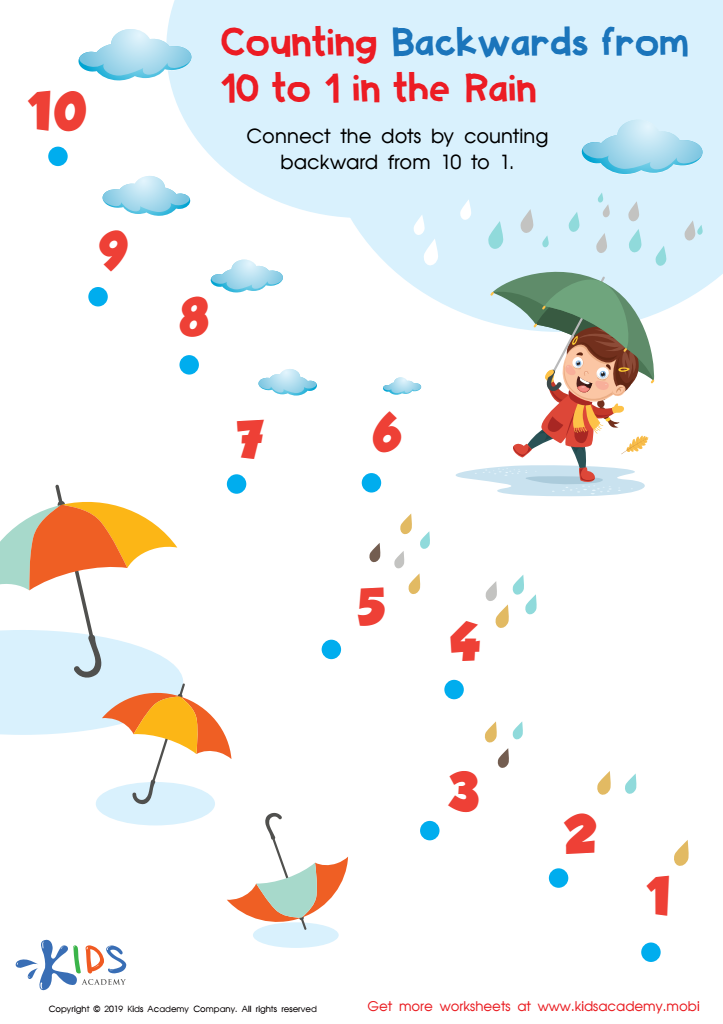

Counting Backwards from 10 to 1 in the Rain Worksheet
Sequencing skills, particularly in relation to numbers, are crucial for children aged 4 to 8 as they lay the foundation for mathematical understanding and critical thinking. Firstly, sequencing helps children recognize patterns, which are essential in arithmetic, algebra, and advanced mathematics. By learning to sequence numbers, children develop the ability to organize information logically, which is a life skill that extends beyond mathematics.
Secondly, sequencing enhances problem-solving abilities. When children practice arranging numbers in order, they are engaging in logical reasoning, which is vital for promptly addressing challenges and making decisions. This skill also supports their ability to follow instructions, which is significant in classroom settings and everyday situations.
Moreover, strong sequencing skills contribute to literacy development as they aid in understanding narratives and events in both reading and writing.
Lastly, fostering these skills encourages persistence and patience, as students learn to tackle tasks systematically. Overall, prioritizing sequencing skills in early education helps build confident, competent learners who are well-equipped for future academic and personal success. Teachers and parents play a critical role by providing engaging activities that nurture these skills, ensuring children are prepared for the complexities of later learning.
 Assign to My Students
Assign to My Students






















